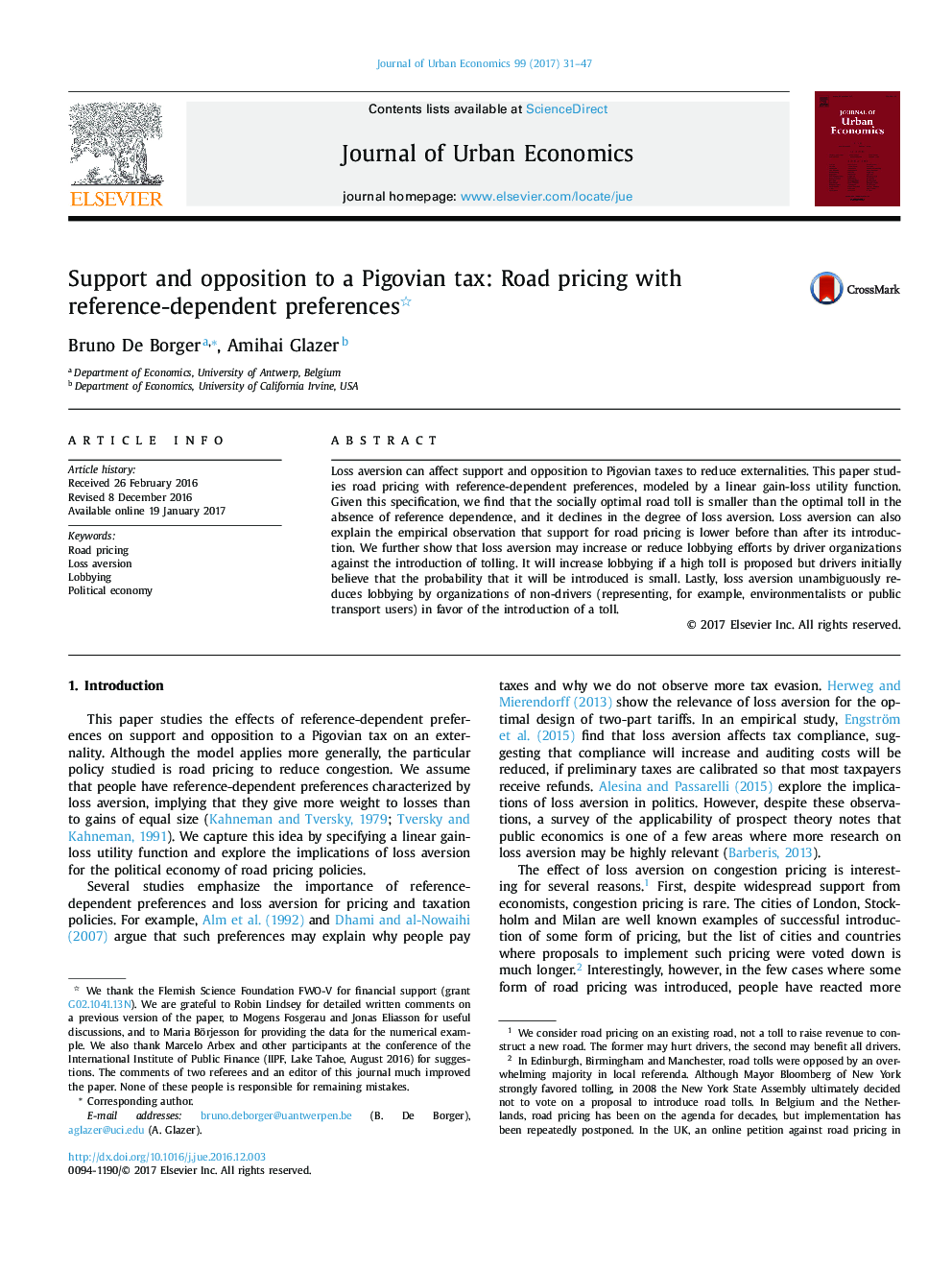| Article ID | Journal | Published Year | Pages | File Type |
|---|---|---|---|---|
| 5101966 | Journal of Urban Economics | 2017 | 17 Pages |
Abstract
Loss aversion can affect support and opposition to Pigovian taxes to reduce externalities. This paper studies road pricing with reference-dependent preferences, modeled by a linear gain-loss utility function. Given this specification, we find that the socially optimal road toll is smaller than the optimal toll in the absence of reference dependence, and it declines in the degree of loss aversion. Loss aversion can also explain the empirical observation that support for road pricing is lower before than after its introduction. We further show that loss aversion may increase or reduce lobbying efforts by driver organizations against the introduction of tolling. It will increase lobbying if a high toll is proposed but drivers initially believe that the probability that it will be introduced is small. Lastly, loss aversion unambiguously reduces lobbying by organizations of non-drivers (representing, for example, environmentalists or public transport users) in favor of the introduction of a toll.
Related Topics
Social Sciences and Humanities
Economics, Econometrics and Finance
Economics and Econometrics
Authors
Bruno De Borger, Amihai Glazer,
